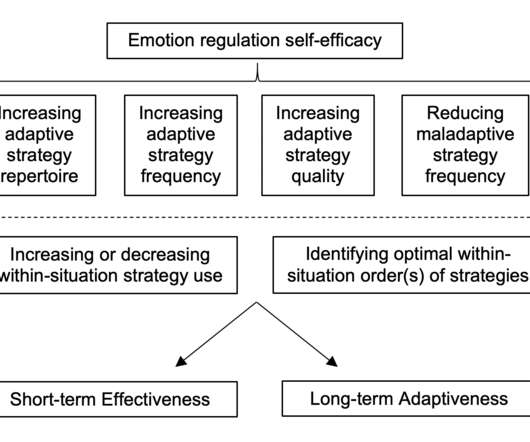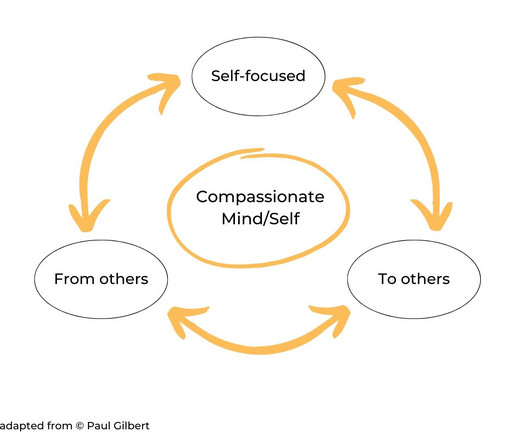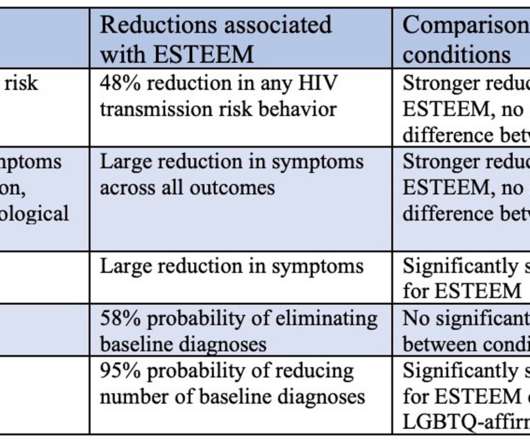Observing therapist-patient interactions to predict dropout from psychotherapy
Society of Clinical Psychology
OCTOBER 1, 2021
Over about the last 50 years, clinical research has proven without a doubt that psychotherapy significantly alleviates the symptoms of a wide range of mental illnesses, for example, depression, anxiety, post-traumatic stress disorder, eating disorders, and addictions (Lutz et al., in an early session of psychotherapy.





























Let's personalize your content